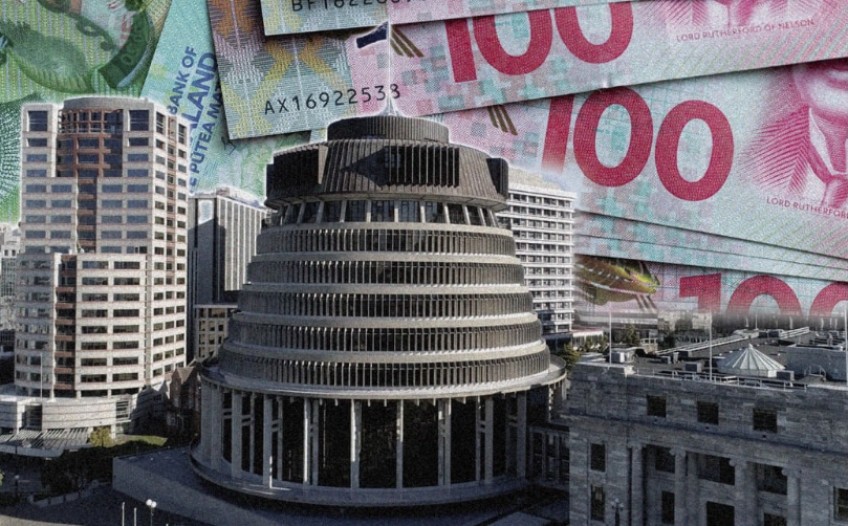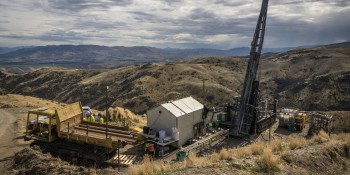Budget: Coalition claws back savings from pay equity, KiwiSaver - tax benefit for business

The coalition has shaved off an average $5.3b government spending for each of the next four years in its latest Budget.
About half comes from its controversial pay equity overhaul.
Other savings have been found by halving the government's KiwiSaver contributions, tightening welfare for 18-and-19-year-olds, and fully means-testing the Best Start child payment.
The cuts are counterbalanced by new spending of $6.7b a year - mostly through increased budgets for health, education, law and order, and defence.
That sum also includes a new $1.7b "Investment Boost" tax incentive for businesses - billed as the Budget's "centrepiece" - and some targeted cost-of-living support.
Unveiling her second Budget as finance minister, Nicola Willis pitched it as "responsible".
"This is not austerity - far from it. In fact, it is what you do to avoid austerity," Willis said.
How much was saved through the pay equity shake-up?
Budget documents reveal the tightening of the pay equity regime - passed under urgency in early May - will net the government $2.7b every year.
It's has also "repurposed" a one-off $1.8b from previous contingencies related to the scheme into other capital expenditure.
Willis said the savings amounted to about $12.8b in total over the next four years.
She told reporters the scheme, when set up in 2020, was expected to cost just $3.7b over that period, which should give a sense of the "scale of the blow-out".
The pay equity changes mean workers now face a higher threshold to prove they are underpaid due to sex discrimination. The government had earlier said the changes would save "billions of dollars" but refused to divulge the exact sum until Budget Day.
Willis stressed "a significant sum" remained to meet potential costs of future pay equity settlements under the new regime.
"The government anticipates there will be pay rises in female-dominated public sector workforces achieved through normal collective bargaining."
Nip and tuck
As widely expected, the Budget includes significant changes to the KiwiSaver retirement savings scheme, affecting employers, employees and the government.
The annual government contribution has been halved to a maximum of $260.72 from July and scrapped altogether for those earning more than $180,000 a year.
The default rate of employee and employer contributions will be gradually increased from 3 percent to 4 percent over a three-year-period, though workers can temporarily opt to stay at 3 percent for a year at a time.
The scheme will also be expanded to fully include 16-and-17-year-olds from April next year.
From April next year, the Best Start child payment scheme will be fully income tested in the same way the second and third years are, with payments cut off when a family earns more than $97,000 a year.
It would save $211m over four years.
In a surprise change, eligibility for the Jobseeker benefit is also being tightened. Eighteen-and-19-year-olds will be subject to a "parental assistance test" to prove their parents cannot support them.
That's expected to recoup $163.7m over four years.
The Budget centrepiece: Investment Boost
Willis made a point of highlighting a "major new tax incentive" - beginning immediately - designed to encourage business investment.
The "Investment Boost" policy allows businesses to deduct 20 percent of the cost of new assets - such as machinery or tools - from taxable income on top of normal depreciation.
That means those businesses will face a much lower tax bill in the year of purchase.
Willi said the policy would apply to all new assets purchased in New Zealand, as well as new and used assets imported from overseas. It would cover commercial buildings but not land or residential buildings.
She said it was expected to lift GDP by 1 percent and wages by 1.5 percent over the next two decades.
"Our government knows businesses have been knocked around by challenging local and international economic conditions. This tax incentive shows that we are backing them to succeed," Willis said.
The new tax credit was expected to cost $1.7b a year in reduced revenue.
Other new spending initiatives
As teased, the Budget includes some targeted cost-of-living support through an increase to Working for Families abatement thresholds and rates.
The changes are expected to deliver an extra $14 a fortnight on average to about 142,000 families, most earning less than $100,000 a year.
The SuperGold card rates rebate will also be expanded to provide more support for up to 66,000 more retirees. A new income abatement threshold is being added and the maximum rebate lifted from $790 to $805.
The expansion would cost $154m over four years.
As well, the Budget includes $91m over that period to allow doctors to issue prescriptions for up to 12 months for medicines "if it is clinically appropriate and safe to do so."
Most government departments have received very limited or no extra funding this year, meaning they will have to absorb increases in costs, such as wages.
Health (up $7b), education (up $1.5b), law and order (up $1.1b), and defence (up $1.9b) are the main exceptions regarding operating funding over four years.
In late April, Willis primed New Zealanders to expect "tough but necessary" spending cuts to existing funding commitments, with new initiatives "strictly limited to the most important priorities".
Sign up for Ngā Pitopito Kōrero, a daily newsletter curated by our editors and delivered straight to your inbox every weekday.





















